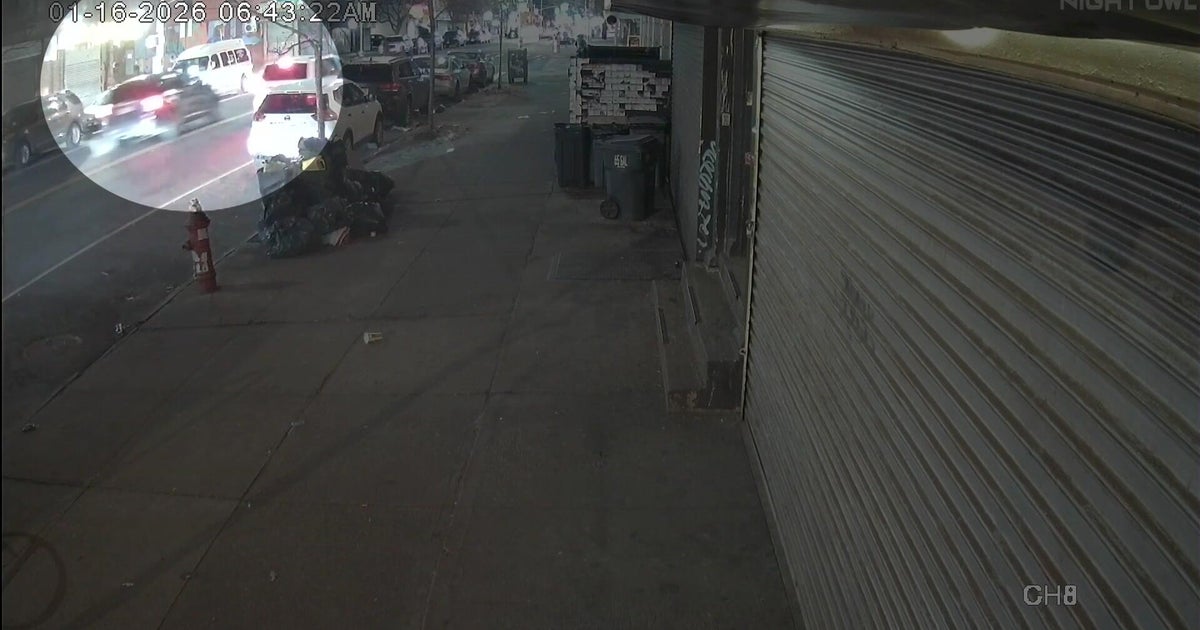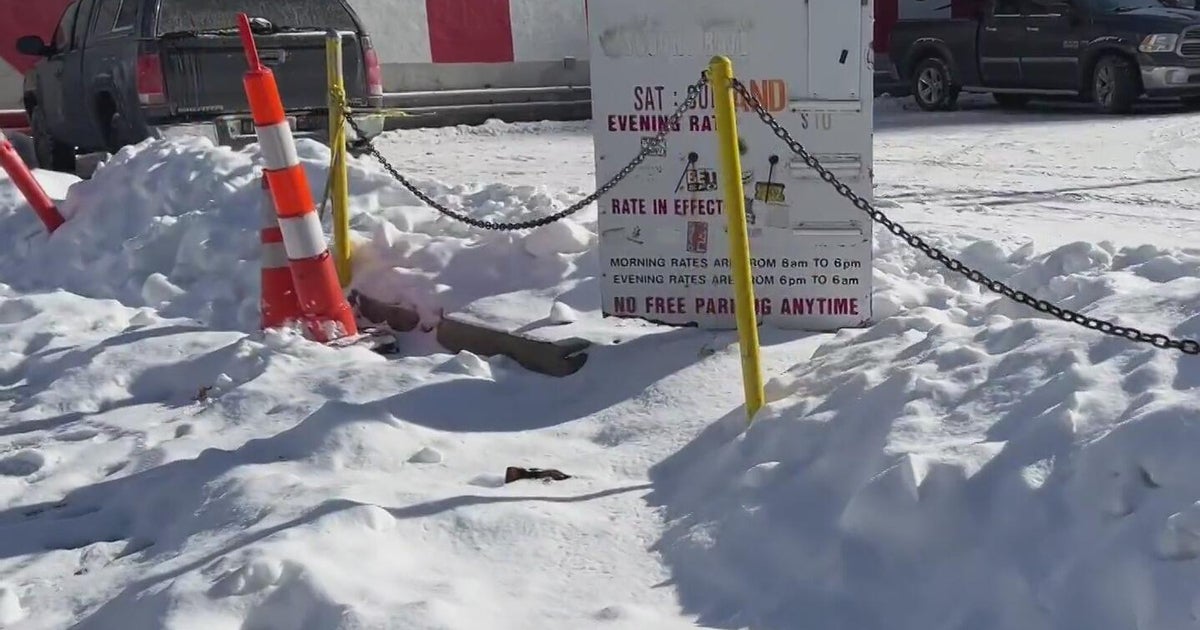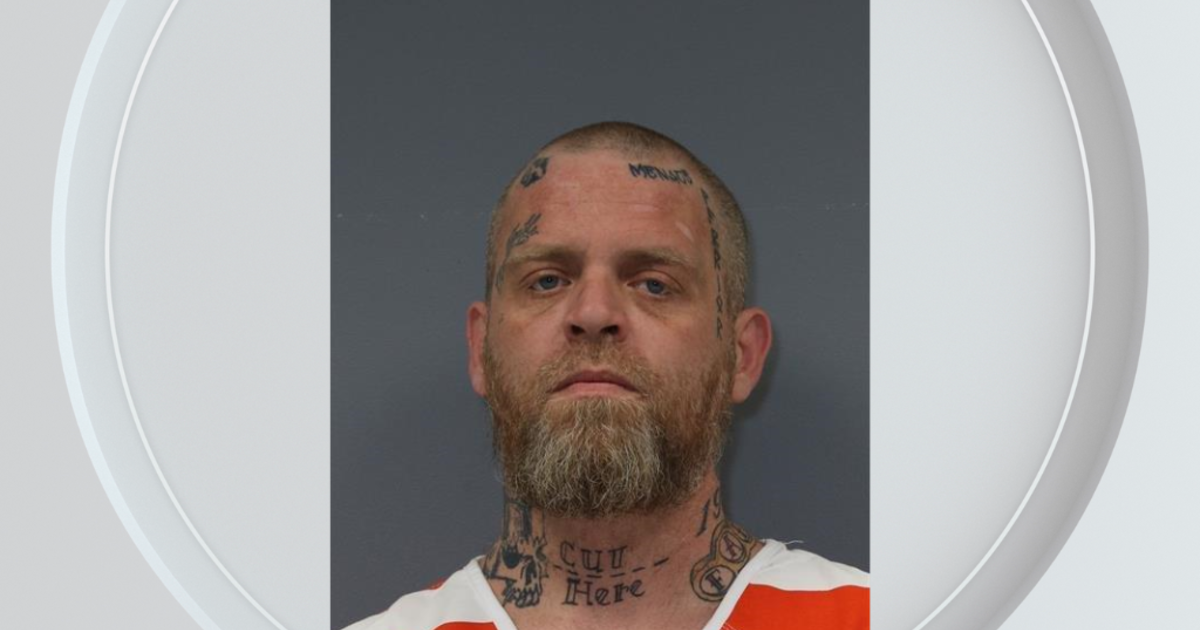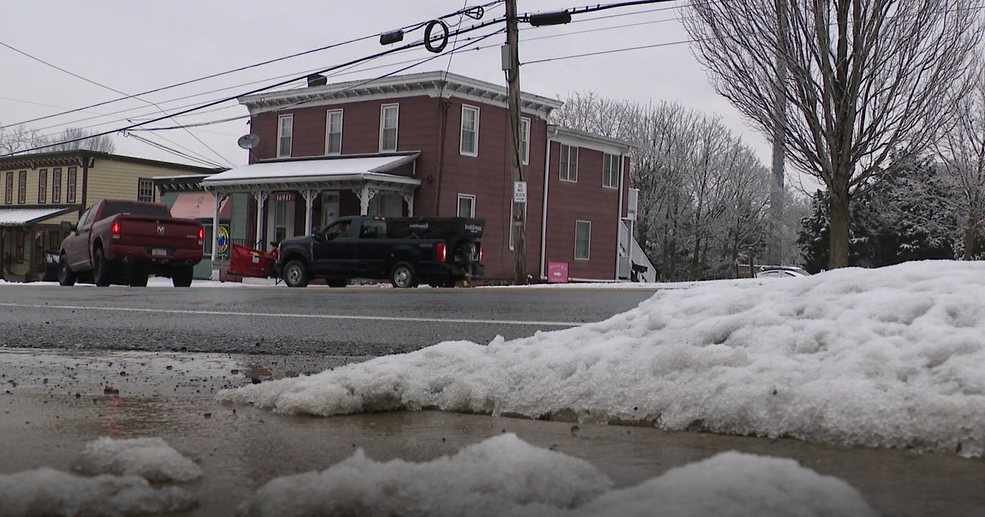How a young woman's memory became a focal point in California's Proposition 36 fight
It's been five years since Christine Capelouto found her 20-year-old daughter slumped over sideways, still sitting on the floor in front of her mirror where she'd been taking off her makeup the night before.
Alexandra, who was home from college for a visit, was having trouble sleeping and made the fatal decision to buy a prescription pain pill on Snapchat, her mother said.
"The night of her passing, she got an email that she got a job at a foster care facility," said Christine, who noted that her daughter had a passion for helping children.
Related:
- Fact check: Proposition 36 supporters say it will combat California's retail theft. Here's what to know.
- Fact-checking claims about California's Proposition 36: What it means for drug arrests
Home surveillance video from later that night captured the final images of Alexandra when she walked outside to buy what she thought was Percocet. As part of a plea deal, the dealer later admitted that he knew something Alexandra did not: The pill was laced with fentanyl.
Alexandra died in 2019 before the "one-pill-can-kill" campaigns brought awareness to counterfeit prescription pills.
In September, the Capelouto family won a landmark $5.8 million civil verdict against the man who sold her the pill, but their fight began years earlier.
"Soon after Alex died, we came up with this idea of an admonishment to give those who are convicted of drug offenses a warning, making them aware of the dangers of what they're doing," Matt Capelouto, Alexandra's dad, explained.
The admonishment would warn them that if they deal fentanyl again, and if someone dies, they could be charged with murder.
It was intended to mirror the warning California drunk drivers get when they're convicted of DUI, which was credited with decreasing drunk driving deaths.
The Capeloutos named their warning Alexandra's Law.
"The big problem with California right now is in order to hold a drug dealer accountable for a death, you have to prove that they were aware of those dangers," Capelouto explained. "And that's actually a very challenging burden to prove. Alexandra's Law really addresses that."
However, the legislation was introduced five times in four years and never got past the Senate and Assembly Public Safety Committees, which are the first stop for any crime-related bill in California.
Alexandra's Law was killed once in the Assembly Public Safety Committee, twice in the Senate Public Safety Committee, and twice Democratic leadership chose not to hear it in committee at all.
"People don't understand how this process works," Matt Capelouto said. "First, it has to get out of committee, which just consists of a handful of people who, in my opinion, ultimately abuse their power."
Opponents of the legislation, including Bay Area state senators Scott Wiener and Nancy Skinner, worried that people who don't realize they're selling fentanyl would be subject to Alexandra's Law, such as young people at parties who sell or distribute fentanyl-laced drugs.
"As parents...I would welcome that warning," Matt Capelouto said.
However, critics argue it's more than just a warning. If the person sells fentanyl again as an adult, and if someone dies, the record of the prior warning would make them more likely to face murder charges the next time.
"Makes sense to me," Matt Capelouto said. "I mean, they were clearly aware of the dangers."
When asked how he'd respond to people who say his daughter did something illegal when she bought the pill, Matt Capelouto noted that he'd "have to say they're right."
"And she paid a price," he said. "She took half of this pill before going to bed and it killed her within minutes. A poor choice, but not an evil choice."
"The evil choice," Capelouto added, "was by that man who chose to risk her life to make a few dollars. And that person bears accountability."
Killing Alexandra's Law without a vote
More than 100 people testified at the final Senate Public Safety Committee hearing for Alexandra's Law in April of 2023, most in support of the bill. Many of them were parents holding photos of their children who were killed by fentanyl.
"My heart breaks knowing that had this passed four years ago, their kids might be alive today," Matt said as he watched back the hearing video of parents testifying in support of the bill.
In a show of bipartisan support, 22 state senators, both Republicans and Democrats, had signed on as co-authors to Alexandra's Law, along with dozens more lawmakers from the Assembly.
"If we could have got it to the floor for a vote, it would have passed," Capelouto said.
But first, it had to get through four state senators—Bay Area Democrats Aisha Wahab, Nancy Skinner and Scott Wiener, and Southern California Democrat Steven Bradford—on a committee that killed Alexandra's Law before.
The Senate Public Safety Committee is made up of four Democrats and one Republican. The lone Republican, Rosilicie Ochoa Bogh, was a co-author of Alexandra's Law.
The supermajority Democratic leadership appoints committee members, explained long-time lobbyist and legislative legal expert Chris Micheli.
He notes that, for years, the public safety committees have been made up of a majority of liberal Democrats. "This often predetermines the outcome of tough-on-crime legislation," Micheli explained.
The public safety committees in the California Legislature are generally known for killing most bills that may increase criminal penalties.
"You may disagree with (Alexandra's Law)," Matt Capelouto said. "But at least let your peers, in this case, a majority of them, weigh in on it,"
Instead, in its final hearing in 2023, the four Democrats on the Senate Public Safety Committee didn't vote.
They sat silently as their names were called, killing Alexandra's Law again, this time without a single vote against the bill on the record.
"We don't elect these people to go to Sacramento to not vote," Matt Capelouto said.
Alexandra's Law: A civics lesson
That hearing served as a bit of a civics lesson for other bereaved parents — including Laura Didier and Regina Chavez — whose children also died from fentanyl poisonings. They had no idea how California's Capitol really worked until they saw it firsthand.
"It's not appropriate to not go on record as being for or against something," said Didier, whose son, Zach Didier, died two days after Christmas 2020.
"We're doing our job by voting," said Chavez, whose daughter, Jewels Wolf, died in June 2022. "That is what they signed up for, to represent us.
State Senator Tom Umberg, an Orange County Democrat, was the primary author of the final versions of Alexandra's Law. He explained that not voting has the same impact as voting no. Sometimes, he said, declining to vote is a polite way to vote no. In other cases, it's a way to kill a bill without taking a recorded stance.
The CalMatters Digital Democracy Database reveals that Alexandra's Law was one of at least 15 bills that died in 2023 because lawmakers chose not to vote.
Updated Digital Democracy data reveals that number more than doubled in 2024.
This year, 39 bills died because too many lawmakers chose not to vote on the record. Fifteen of those bills died in the Assembly Public Safety Committee and one in the Senate Public Safety Committee.
"That is the system that we have," Umberg said in an interview earlier this year. "Should we change it? Probably."
Taking Alexandra's Law directly to voters
Frustrated with the legislature, Matt Capelouto attempted to get Alexandra's Law on the ballot so that the public could vote on it themselves.
While legislators can vote to put something on the statewide ballot, those outside the Legislature must gather hundreds of thousands of signatures to qualify for the ballot.
"The downside of a ballot measure these days is it's expensive," Matt Capelouto said.
He quickly realized that he and his group of fellow bereaved parents couldn't do it alone.
However, Californians for Safer Communities — a group of district attorneys, retailers, and crime victims — also offered to add Alexandria's Law to their ballot measure, The Homelessness, Drug Addiction, and Theft Reduction Act.
The initiative—which has since been placed on the ballot as Proposition 36—was intended to increase penalties for some theft and hard drug offenses. When Matt decided to give up on his measure and join the coalition, it already had more than enough money and signatures to eventually qualify for the ballot.
Alexandra's Law is just one component of Prop 36, which also rolls back some of Proposition 47, a 2014 voter-approved ballot measure that was intended to reduce the prison population by reducing penalties for theft and drug crimes. Voter approval of a new ballot measure is required to amend a voter-enacted law.
Gov. Gavin Newsom fought hard to keep Proposition 36 off the ballot, arguing that lawmakers should decide on these policies, not voters.
Newsom and Democratic leadership were strong supporters of Proposition 47 and didn't want it amended. Behind closed doors, sources say there was also concern that having a crime measure on the ballot would attract more conservative voters, with the potential for a down-ballot effect on California's congressional races that could lead to more Republicans in Congress.
First, the governor's administration tried to convince district attorneys and retailers to delay putting Proposition 36 on the ballot until 2026.
Then, legislative leadership introduced a package of tougher-on-crime retail theft bills that included a so-called poison pill. It was designed to deter voters by automatically killing the retail theft laws passed by the Legislature if voters passed Proposition 36.
However, Newsom and legislative leaders could not get enough Democrats to support the political maneuver, so they scrapped the poison pill.
Then, Alexandra's parents say they watched as Gov. Newsom and Democratic leaders used their daughter's name against them.
Leadership introduced a competing ballot measure, which included a different version of Alexandra's Law, that was intended to kill the real Alexandra's Law, already in Prop 36.
There were audible gasps among lawmakers on the assembly floor when Placer County Assemblyman Joe Patterson revealed leadership never asked permission to use Alexandra's name.
The Capeloutos say they learned that the governor was using Alexandra's name in his ballot measure from Patterson shortly before lawmakers were set to vote on his bill.
"No one here—not the governor, not the author, no one from the majority party—had the courage to call Matt and ask him if you could use her name," Patterson said on the floor.
According to Patterson, El Dorado County District Attorney Vern Pierson was the first to notice Alexandra's name in the governor's bill. Pierson notified Patterson as he was on his way to the Capitol to vote on the bill. Patterson had introduced one of the early versions of Alexandra's Law.
No comment
State Senator Aisha Wahab (D-Fremont), the chair of the public safety committee that killed the real Alexandra's Law without a vote, authored the governor's bill that included Alexandra's name without permission.
She declined multiple interview requests and refused to speak with us when we approached her in person at the State Capitol.
"What I've been able to see firsthand is just how there's an abuse of power, and that is worrisome," Matt Capelouto said.
Alexandra's parents believe the decision to play politics with their daughter's memory came from the top. They played us a voicemail that they received from the governor's chief of staff, Dana Williamson.
"I just called to apologize profusely that we didn't reach out to you about the Alexandria's (sic) Law," Williamson said in the voicemail, mispronouncing Alexandra's name, which her mom said just added insult to injury.
"What I was most upset about was how watered down it was," Matt explained. "That was not the bill we were fighting for. I realized this is not Alexandra's Law. And then it really sunk in with me just how disrespectful this was."
This is the language in Newsom's version of Alexandras' Law. Here is the language in Prop 36.
Shortly after Williamson left that voicemail, Newsom pulled his competing ballot measure.
"That battle was won," Matt said. "The war is not over. We still need to get this passed, but finally, we won a battle."
The Governor's Office declined repeated interview requests; however, Izzy Gardon, Newsomom's Director of Communications, provided the following statement:
"Mr. Capelouto's advocacy in memory of his daughter is both admirable and deeply courageous. Our office apologized to him for our effort to enshrine his proposed measure into law without prior coordination. Fentanyl is a deadly poison, and those who peddle it must be held accountable — including, when warranted, for murder."
The Capeloutos continued advocacy
A lot has changed since Alexandra died. Through stories like hers and countless others, more people now know that "one pill can kill."
"Our daughter told her mom that she was going to do something to save the lives," Matt Capelouto said, to which Christine Capelouto added, "I believe she has now."
The Capeloutos continue their advocacy and support for other families whose children die from fentanyl poisoning through their nonprofit, Stop Drug Homicide.
(NOTE: This story was updated to add additional context and clarity.)








